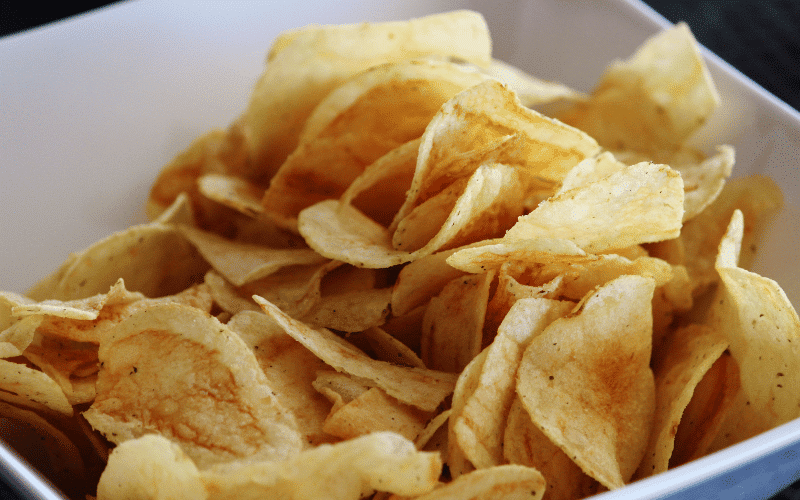Food 19: Salty Snacks

There’s no denying the appeal of a bag of salty chips or pretzels. However, for those living with afib, these snacks should be consumed sparingly due to their high sodium content.
Sodium plays a key role in fluid balance in the body. Too much sodium can lead to fluid retention, causing an increase in blood volume. This increased volume means that the heart must work harder to pump blood throughout the body, which can lead to an increase in blood pressure and strain on the heart. In individuals with afib, this increased cardiac workload can potentially trigger an afib episode.
In addition to the immediate effects of high sodium intake, long-term consumption of salty snacks can lead to chronic high blood pressure, also known as hypertension. Hypertension is a significant risk factor for afib, as it can cause structural changes in the heart that increase the likelihood of this arrhythmia.
Furthermore, many salty snacks are high in unhealthy fats and calories, which can contribute to weight gain and increase the risk of heart disease, both of which can worsen afib symptoms.
To curb sodium intake, consider reaching for low-sodium snack options or snacks rich in heart-healthy fats, such as nuts and seeds. Fresh fruits and vegetables also make great snack options. If you have a hankering for something crunchy, consider air-popped popcorn without added salt or butter.